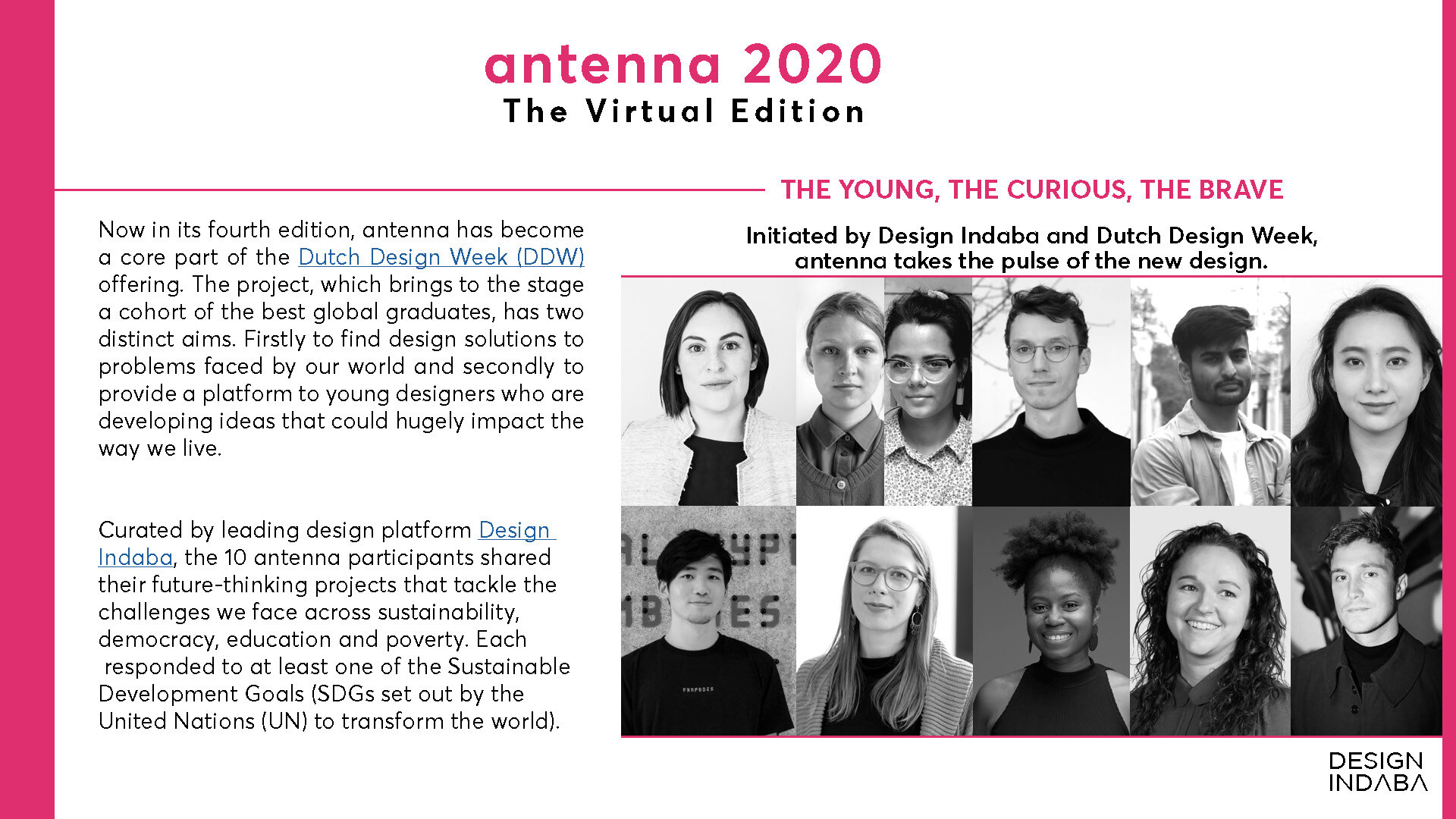Past Event
Design Indaba Antenna Program at Dutch Design Week 2020: Fengjiao Ge MLA 20
RISD Global is pleased to announce that Fengjiao Ge MLA 20 has been selected to join the next cohort of emerging designers from across the globe to participate in the Design Indaba “Antenna” platform and program at Dutch Design Week 2020.
Design Indaba is a leading design organization in South Africa, which is committed to design, understood in the broadest sense, for social justice and in support of the UN Sustainable Development Goals. Established in 2017 by Design Indaba, Antenna is a global scan for the world’s next top design graduates. Design Indaba's Antenna program is an annual platform at the Dutch Design Week in Eindhoven to highlight the work of emerging, global design leaders.
Each year, Design Indaba "Antenna" global graduates take to the stage alongside design industry leaders at Dutch Design Week. They prove time and time again that not only can they hold their own, but they are often the source of completely new ideas, unencumbered by tradition or industry standards. Antenna 2020 takes place Oct 17-25, 2020 in a virtual platform.
RISD's selected nominee for Antenna 2020, Fengjiao Ge, is a recent graduate of the Masters in Landscape Architecture program at Rhode Island School of Design. Knowing that the composition of Landscape Architecture crosses paths with multiple disciplines, she devoted herself to a research & design thesis project for which she was selected to present – Flowing Garments – which focuses on excavating new possibilities for garment waste through landscape design.
Other RISD graduates recently selected for Design Indaba's Antenna program at Dutch Design Week in the Netherlands include:
- Hyun Seok An MID 20
- Gavin Zeitz MLA 18
- Kelsey Wakefield MLA 17
"This project focuses on creating a localized response to a global problem related to globalization and fast fashion. It considers both the amount of post-production waste and the carbon footprint left by the garment industry’s response to a global desire for novelty and affordability, and its dependence on cheap labor, minimal environmental regulations, distributed raw materials and production sites, and markets far removed from places of manufacturing. All this has created an unethical and unsustainable supply chain model.
The Flowing Garments project is situated in Bangladesh, a country producing many of these garments, and one paid to receive other countries’ waste. Bangladesh is a densely-populated, developing and deltaic country with major rivers, vast floodplains, low elevation, and a serious lack of raw materials needed for erosion control and building. This project combines issues of waste with issues of local need and empowerment. It aims to transform garment waste into its own supply chain and physical framework to provide a new supply of raw material for construction, embankment stabilization, rural development, locally-controlled industries, and new jobs."
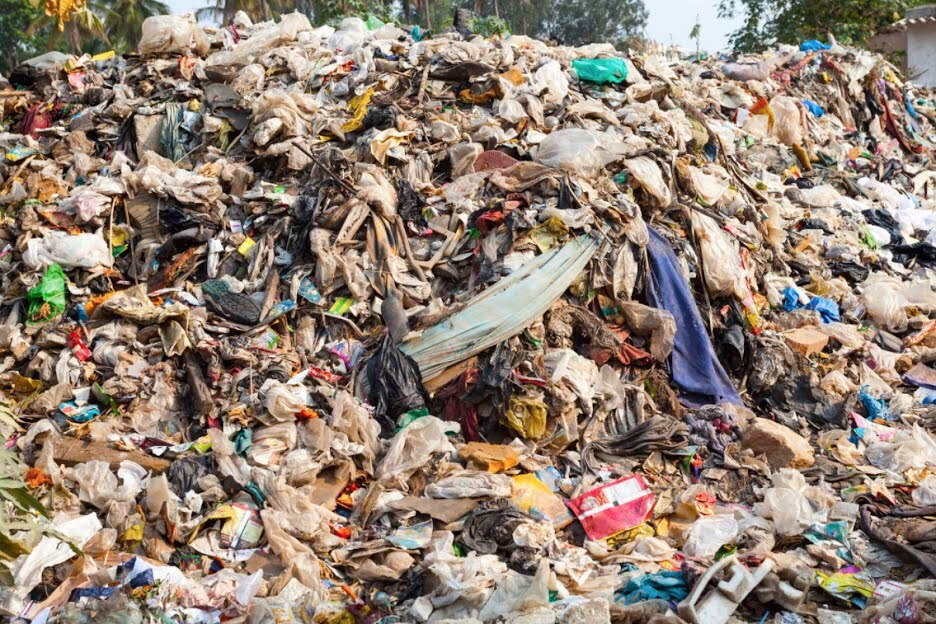
Ge’s project reuses textiles waste, which takes up 5 percent of the world’s landfills.
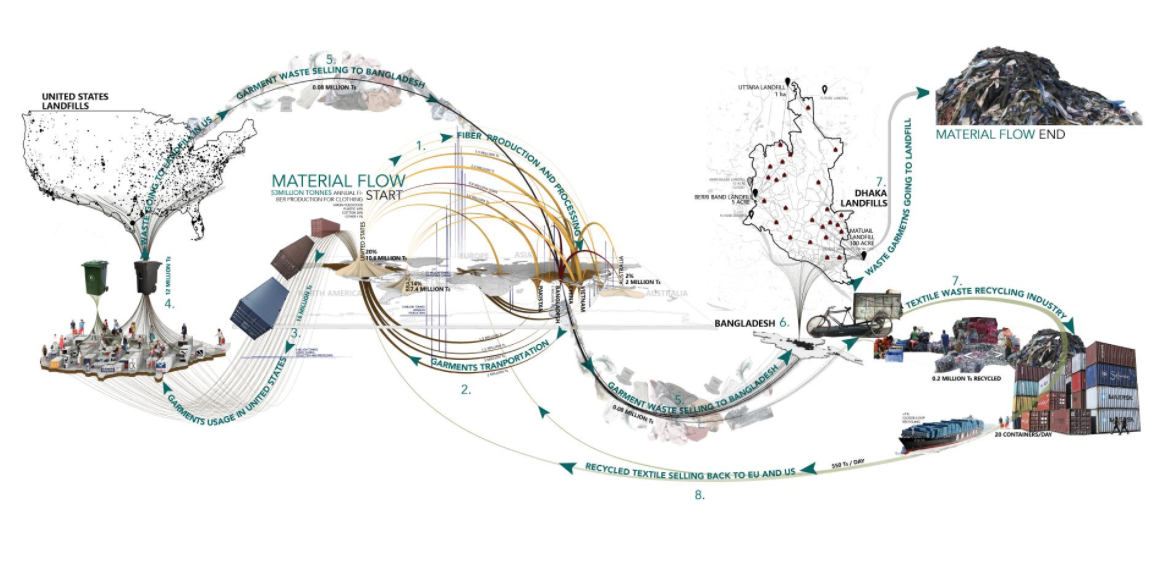
Flowing Garments proposes a new materials lifecycle in which textiles waste is pulled from Bangladesh's landfills and used to shore up the coastal community of Harirampur.
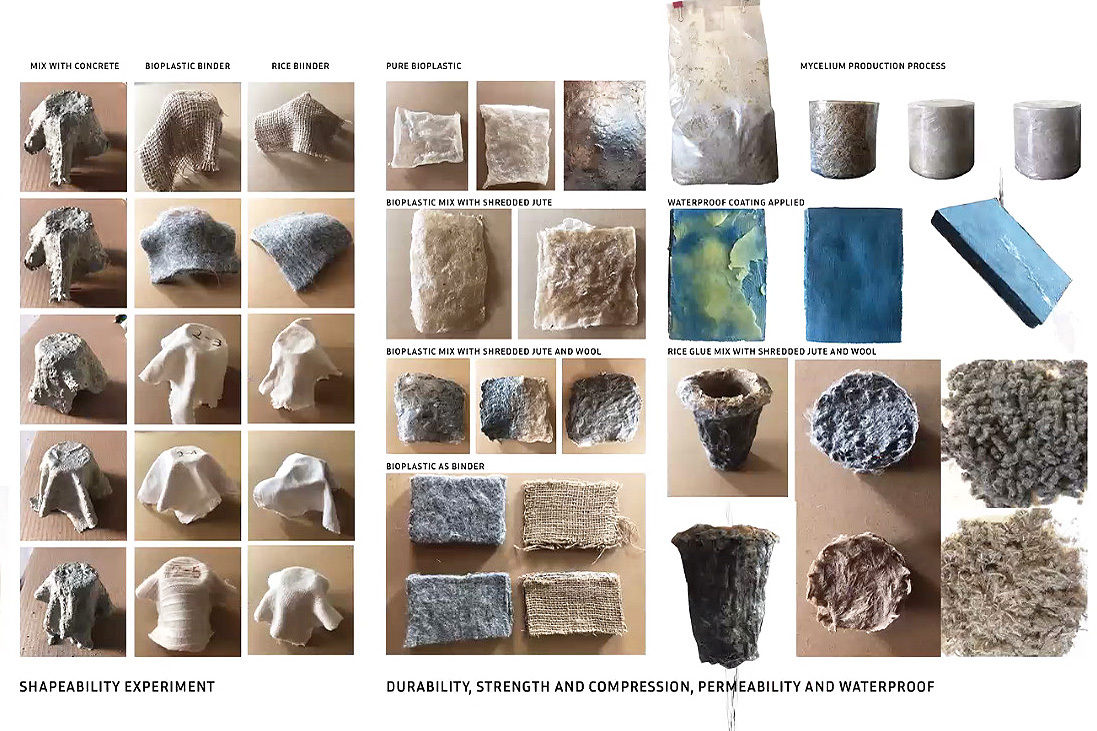
Ge experimented extensively with recovered materials, testing for traits like durability, strength and permeability.
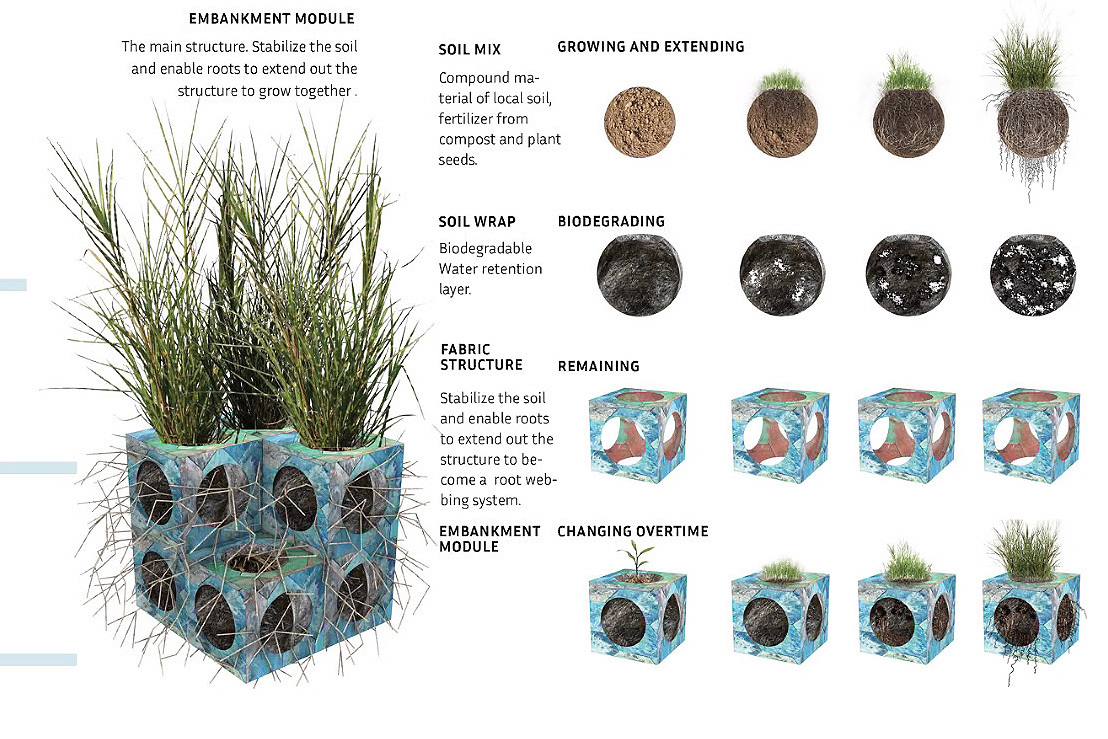
She hopes to stabilize the eroding coastline by combining the modular structures she designed with deep-rooted local grasses.
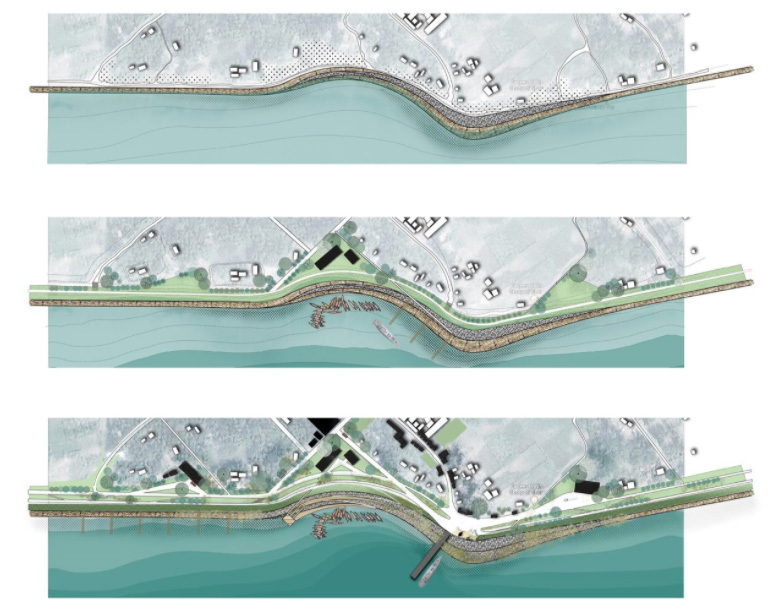
Ge envisions the waterfront conservation project in Harirampur in three phases: restoration, transition and attraction/development.
Antenna 2020
Watch the presentation recording
Read more about Fengjiao's project in RISD News: Rethinking the Materials Lifecycle
Read more about the Antenna 2020 Virtual Edition in the Round Up
